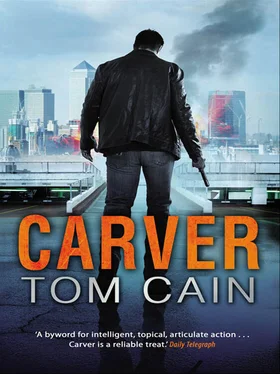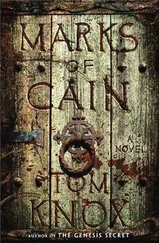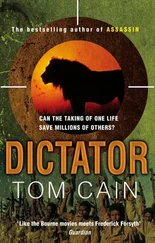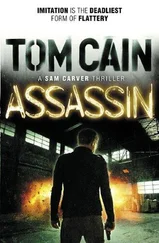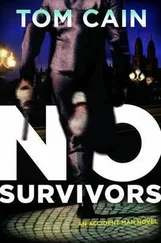Tom Cain - Carver
Здесь есть возможность читать онлайн «Tom Cain - Carver» весь текст электронной книги совершенно бесплатно (целиком полную версию без сокращений). В некоторых случаях можно слушать аудио, скачать через торрент в формате fb2 и присутствует краткое содержание. Жанр: Триллер, на английском языке. Описание произведения, (предисловие) а так же отзывы посетителей доступны на портале библиотеки ЛибКат.
- Название:Carver
- Автор:
- Жанр:
- Год:неизвестен
- ISBN:нет данных
- Рейтинг книги:4 / 5. Голосов: 1
-
Избранное:Добавить в избранное
- Отзывы:
-
Ваша оценка:
- 80
- 1
- 2
- 3
- 4
- 5
Carver: краткое содержание, описание и аннотация
Предлагаем к чтению аннотацию, описание, краткое содержание или предисловие (зависит от того, что написал сам автор книги «Carver»). Если вы не нашли необходимую информацию о книге — напишите в комментариях, мы постараемся отыскать её.
Carver — читать онлайн бесплатно полную книгу (весь текст) целиком
Ниже представлен текст книги, разбитый по страницам. Система сохранения места последней прочитанной страницы, позволяет с удобством читать онлайн бесплатно книгу «Carver», без необходимости каждый раз заново искать на чём Вы остановились. Поставьте закладку, и сможете в любой момент перейти на страницу, на которой закончили чтение.
Интервал:
Закладка:
When he had opened the box and seen the pens lying within it, Gryffud had got up from behind his desk and walked across his office. He had closed the door and lowered the blinds that covered the window, through which he could normally keep an eye on his staff and they on him. No one had thought anything of it. The lowering of ‘Bryn’s blinds’ was the accepted sign that Gryffud was deep in creative thought: that mysterious process through which he came up with the unexpected, innovative concepts that had made the company’s name and kept them all in work.
But it wasn’t a desire to tap into his creativity that had prompted Brynmor Gryffud to cut himself off from the world.
He went back to his desk and took one of the blue pens out of its packet. Using a scalpel, he cut open one end of the pen and held it at an angle, the open end above the palm of his other hand. Under normal circumstances, the reservoir that contained the pen’s ink would have slid out. Instead, an innocuous white plastic tube, about 70 mm long and 8 mm in diameter, landed on Gryffud’s hand. The burly Welshman’s beard was spit by a piratical grin. The tube was a detonator. Fitted with a fuse and inserted into a mass of explosive material, it would turn an inert collection of chemicals into a highly destructive bomb.
Gryffud repeated the process for a randomly chosen red pen, from which a bright yellow tube, similar to the white one, appeared. This was an igniter, virtually identical to the detonator, except that its purpose was to start an instant, short-lived, but highly intensive blaze.
The two devices were replaced in their respective pens and returned to the appropriate packets. Gryffud picked up his phone and made a call.
‘The pens have arrived,’ he said. ‘They’re exactly what we asked for. How about you?’
‘No worries, mate,’ replied Dave Smethurst, ‘Smethers’ to his mates, a former army staff sergeant who now worked as a private contractor. Like Gryffud, Smethurst had a specialized clientele. He went on, his voice imbued with the adenoidal flatness of the East Midlands — as dreary an accent as Gryffud’s was mellifluous — ‘The lads have grabbed all the containers we need. And the gardening supplies are piled up in the barn.’
‘I hope you shopped around, Smethers.’
‘Oh yeah, we went to at least ten different garden centres, looking for the best value. And meanwhile the ladies, God bless ’em, are hard at work making the cakes.’
‘Good, sounds as though we have everything we need for the party. I’ll see you at the farm, then.’
‘Oh yeah, this is going to be fookin’ great. It’s really going to go with-’
‘Don’t say it,’ Gryffud interrupted.
There was a laugh at the other end of the line. ‘Take it easy, Taff. I was just winding you up.’
Gryffud ended the call.
‘… a bang,’ he murmured to himself, finishing the other man’s sentence.
Then he pulled up the blinds and opened his office door to the world once again.
9
The Old Town, Geneva, Switzerland
Shafik had a helicopter waiting to take Carver the eighty-five miles across the Aegean Sea from Mykonos to Athens. ‘Don’t worry,’ Ginger had said. ‘I’ll get the hotel to send you your luggage.’
‘Will you, now?’ thought Carver, wondering how many bugs and tracking devices would have been tucked away among his possessions by the time he saw them again. Thinking also, ‘Funny, I haven’t told you where to send them…’
Thanks to the mid-afternoon Swissair flight, Carver reached Geneva within three hours, but it was long enough to consider a number of different options for extricating himself from the Malachi Zorn hit. Forty minutes later his cab was pulling up on a narrow cobbled street in the Old Town district, beside the four-hundred-year-old building where he had a top-floor apartment.
There was a cafe next door, with a few plastic tables and chairs on the street, and steps down to a tiny, low-ceilinged basement room within. Years before, it had belonged to a friend of Carver’s called Freddy. Two nights after Carver’s fateful assignment in Paris, a Russian psychopath, Grigori Kursk, had forced Freddy to lie face down on the floor, then shot him through the back of the skull at point-blank range. Now the cafe was run by Freddy’s widow, Marianne, and her nineteen-year-old son, Jean-Louis.
Marianne had insisted on staying on, despite the terrible memories. To leave, she said, would be an act of desertion. At first she had struggled to keep the cafe going and pay the rent. Then, about nine months after Freddy’s death, her lawyer had called to inform her that a life insurance policy of which he had not previously been aware had just paid out, enabling her to buy the lease outright.
Marianne was certain that there was no such policy. It seemed clear to her that Carver was the source of the money. Kursk would never have walked into the cafe that night had he not been looking for Carver and Alix; this was a private act of atonement, and it was accepted, graciously, without a word on either side. Had Marianne asked, Carver would of course have denied having anything to do with it. But in his own mind, this was just one of a number of debts of honour he chose to pay: no different, for example, from the two teenagers in southern Africa — the son and daughter of a man who had saved his life — whose education he was funding.
Carver had more money than he needed for himself. There was no point hiding it away in a bank if it could be useful. And it made it easier to sleep at night knowing that something he did, however tiny in the great scheme of things, was unequivocally good.
‘Sam!’ Jean-Louis said, seeing him come through the cafe door. ‘I thought you were going to be away for a month?’
‘Me too.’
‘So the vacation, it was not fun?’
‘It started well.’
‘But turned to shit?’
‘Something like that.’
‘You want a coffee, a cup of your English tea, a glass of wine, maybe?’
Carver was still a Royal Marine at heart. He rarely said no to a brew. ‘Tea would be good. Thanks.’
Silence descended as Carver drank and Jean-Louis busied himself with other customers. When the cup was empty, the boy came over to take it away. Carver reached for his wallet.
‘ Non! Don’t be crazy… I will put it on your account,’ Jean-Louis loudly insisted. Then, as he bent forward to take the mug, he added, much more quietly, ‘There is a man at the front, by the window.’
‘Dark-blue business suit, playing with his phone, yeah, I spotted him,’ Carver murmured back.
‘I think he has not just played with his phone. I am certain he has taken a photograph of you.’
Carver nodded fractionally, then got up from his seat. ‘See you tomorrow. Give my regards to your mum,’ he said, clearly enough to be heard.
Yes, the man with the phone had looked up. And it hadn’t just been idle curiosity.
Carver gave the man a good long look on the way out, letting him know he’d been made.
The man with the phone looked right back, letting Carver know that he didn’t give a damn.
Carver walked out, feeling the man’s eyes on his back, listening for the slightest sound of movement behind him. None came.
Outside, on the street, he turned into a cobbled yard. On all four sides stood centuries-old buildings whose floors were linked by a complex web of external staircases and covered passages that wound around their walls like the endless, logic-defying stairs in a Maurits Escher drawing. Carver made the way to the top of his building and let himself in. Within seconds, his landline started ringing.
He picked it up. ‘Carver.’
‘Check your email.’
The voice was Shafik’s. Carver got out his iPhone and touched the mail icon. He had a new message with two jpeg files attached to it.
Читать дальшеИнтервал:
Закладка:
Похожие книги на «Carver»
Представляем Вашему вниманию похожие книги на «Carver» списком для выбора. Мы отобрали схожую по названию и смыслу литературу в надежде предоставить читателям больше вариантов отыскать новые, интересные, ещё непрочитанные произведения.
Обсуждение, отзывы о книге «Carver» и просто собственные мнения читателей. Оставьте ваши комментарии, напишите, что Вы думаете о произведении, его смысле или главных героях. Укажите что конкретно понравилось, а что нет, и почему Вы так считаете.
